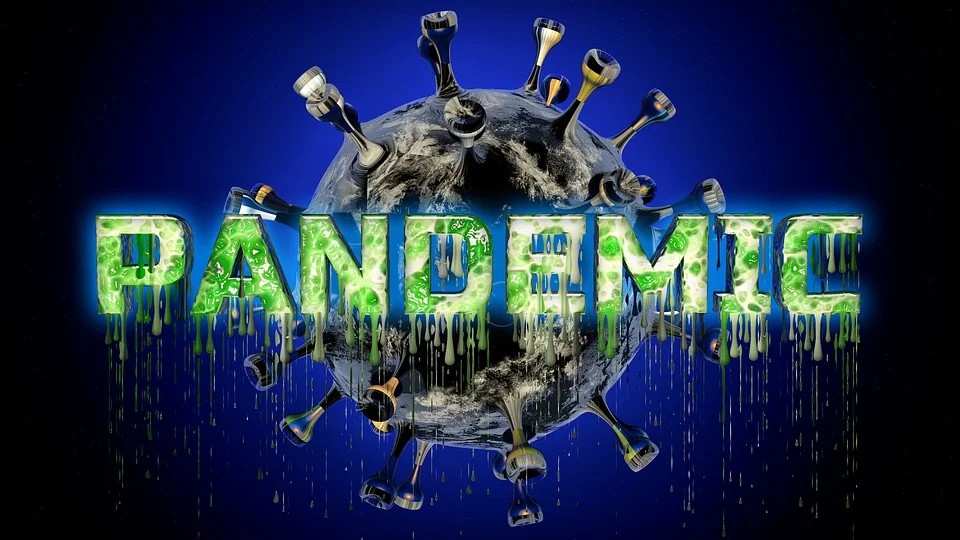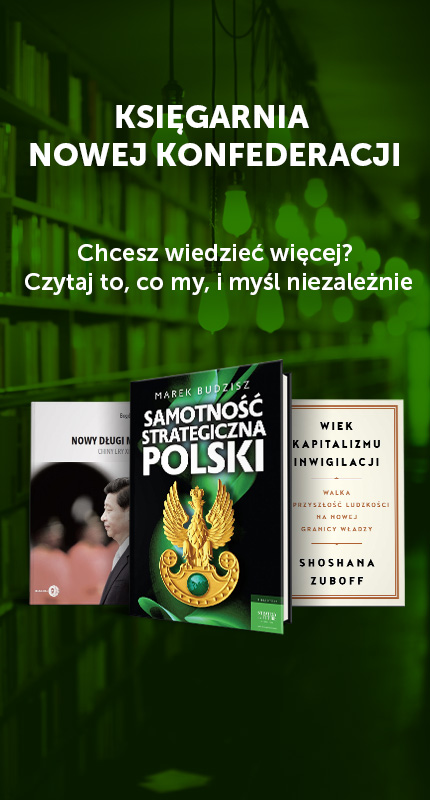
Nie masz czasu na zapoznanie się z całością artykułu?
Wystarczy, że klikniesz ikonę „oznacz artykuł do przeczytania później”. Wszystkie zapisane publikacje znajdziesz w profilu czytelnikaHOW THE WEST LOST ITS FAITH IN HUMANITY AND STARTED TO BELIEVE IN FEAR

Tekst dostępny jest również w języku polskim
In your famous book “How Fear Works” you have stated that since the 1990s the world has been under a strong and increasing influence the culture of fear. What is the culture of fear?
The culture of fear does not necessarily mean that people fear more than ever before, because you can never compare different stages of history. But what I mean by that is that we certainly talk a lot more about fear. And we are told that we need to fear a lot more things than ever before. One of the consequences of this is that we’ve internalized fear as a form of normal behaviour.
I’ll give you a current example. In Austria today [17.04.2020] they began to finish the lockdown, but yet a lot of citizens don’t want to come out. Here in Britain, there’s a discussion where the government is really worried that if it brings an end to the lockdown, a lot of people will be too scared to go out because they have internalized a lot of these messages. What we’ll be seeing today is a situation where fear has acquired a standalone character. It’s not a fear of anything specific, but it just a kind of human passivity, a kind of inability to deal with uncertainty that has become a very powerful element in the way that we experience life.
Why did the influence of the culture of fear increase so much in the last 30 years?
One reason for this is the way we’ve been socializing children for many generations, but it only really hit home in the 1990s. It takes about three, four generations before people change their values. For example let’s take the kind of ideas my son and his school friends were learning: one couldn’t criticise them. They had to be shielded from such an experience. The world is a very dangerous place and they need to be protected. And I think that that kind of idea took a few generations to break through.
One of my friends did a survey of different generations of people and she found that the younger the generation is, the more likely that they will embrace this kind of view of the world, whereas the 60s, 70s, old people, are much more relaxed about many things. The younger generations, particularly the younger parents have much more fearful view of the world.
You said that the relationship between the culture and fear has undergone an important or even a revolutionary change in the first half of the 20th century, namely in the times of the World War I and the World War II, and shortly thereafter. What happened then?
After the World War I (which I think is the single most important experience in Europe, it’s even more important than the World War II) many people drew the conclusion that everything they believed in before was somehow false, or was no longer relevant. They began to say: “We’ve been lied to. We believed in the enlightenment, and it didn’t happen. We believed in certain moral values, and they just doesn’t make any sense at all”.
We regard the past as entirely negative, as “the bad old days” rather than “the good old days”: there’s nothing to be learned by, it is something that we need to go leave behind. At the same time, the future looks increasingly dystopian
We can see that from the interwar period: a really profound moral crisis occurred, which often remained unseen, because what people watched was the ideological crisis. People saw communism and fascism coming up and they thought that this is the real new development. But what they didn’t capture was that underneath it all, people’s moral web of meaning has become very weak. The ability to make moral judgments, to be clear about what is right and wrong: all those things began to be called into question. Without that ability there is no language or value system which can allow you to mediate threats and by means of which threats can be understood. And once they are understood, they need not have such a dominating impact on you.
That’s really where it begins. Then modern culture of fear began to and take a powerful shape which started to crystallise in the 1970s.
What is its shape now? What are the most important issues of the culture of fear in the modern society?
One of them is what I call presentism, which basically means that we regard the past as entirely negative, as “the bad old days” rather than “the good old days”: there’s nothing to be learned by, it is something that we need to go leave behind. At the same time, the future looks increasingly dystopian. Nowadays we don’t really believe that the world in the future can be better than in the present. In a typical Hollywood or Netflix film the future is almost always horrible. So we are stuck in this present, and that kind of presentist sentiment creates certain psychological, intellectual and political reactions.
What reactions?
First of all, it makes us very precautionary. Caution becomes a way we proceed. We have become very risk-averse, very reluctant to take chances, very unexperimentative when it comes to try out new things. It is very surprising in this hyper-technological, seemingly innovative world.
At the same time there is a single value we all buy into. It is the sacralization of safety – not as much as something that’s sensible and prudent – but as something becoming an end in itself. In such a way, safety and the meaning of safety just expands and expands into all kinds of new areas. You can see this in the willingness of people to quarantine themselves. It’s unprecedented. Some reports indicate that the British government was totally surprised about the level of citizens’ compliance: they couldn’t believe that so many people were just willing to stay at home.
What motivates people to such a compliance?
It’s not surprising, because even before the coronavirus you already had – for example – campaigns for safe spaces at the universities (“places created for individuals who feel marginalized to come together to communicate regarding their experiences with marginalization”). The expression “safe space” was being applied in all kinds of different areas. The way we see a person, a human being is also very different than in previous generations.
What is the difference?
We see a person as less able to cope with challenges than ever before. I don’t know the Polish word, but in English we use the word “vulnerability” all the time. People are “vulnerable”.
We don’t have a single word in Polish for vulnerability. It’s “capability of being hurt by other”… But there’s no single word in Polish actually.
In the old days, that’s what vulnerability meant: capability of being easily hurt, injured, destroyed. But it was before the meaning changed. And it only changed in the 1970s. Earlier we were e.g. talking about the vulnerability of bridges or roads. Now it’s not only an adjective. It has become an identity. In the English language there is the expression the vulnerable. It’s like saying, that e.g. Frank is not Hungarian, but he has an identity that is vulnerable. That’s what he is.
In the times of the lockdown the politicians are always saying that we have to look after the vulnerable. But who are the vulnerable? It could be anybody, couldn’t it? This is of redefinition of personhood. We regard ourselves as incapable of coping with the challenges coming from outside.
What if it is true? Maybe because of the development of science and mass communication, we have learned that people can be hurt and destroyed in many ways? Maybe we need this caution to eliminate unnecessary suffering?
It’s an interesting argument. People often argue that now we understand that children can be depressed; we see that there’s autism, there is dyslexia. We never knew these issues before. It’s only from the 1970s when we first began to talk about how important is the medical intervention in children. And in America they had a big campaign to raise the self-esteem to inoculate people against problems. Raising self-esteem was regarded as a very important inoculation against growing up to be unhappy and mentally ill.
But the interesting thing is that after 50 years of mental health intervention in schools things are not getting better. People don’t have less mental health problems, but every year the numbers increase and increase.
The culture of fear began with unravelling of ideologies, e.g. when Marxism more or less died and liberalism began to become less confident about itself and liberals adopted a technocratic outlook
You may say that we, human beings, have finally realized how weak we are, and that we have to protect ourselves. But the more we think along those lines, the more it becomes a self-fulfilling prophecy. At some universities you have almost 40% of students are going to the office and demanding special dispensations and examination because of mental health problems. Their number is growing and growing all the time. From an epidemiological point of view, that it’s impossible or something to rise and rise and rise. And we also know that the more universities have set up new mental health centres to help the students, the more the demand increases.
So I would say that the by trying to think along these pessimistic lines we become less and less able to cope with everyday reality. An illness becomes normal. So the line between being healthy and being ill becomes increasingly eroded.
You have said earlier that vulnerability is becoming an identity. It seems that the role of the discourse of fear in contemporary politics is increasing in a parallel manner to the role of identity politics (on both left and right wing). Can you elaborate on the relation between identity politics and culture of fear?
I think there’s a similarity. The culture of fear began with unravelling of ideologies, e.g. when Marxism more or less died and liberalism began to become less confident about itself and liberals adopted a technocratic outlook. The conservatism began to become estranged from its traditions and became a sub-genre of neoliberalism. At that point this double development started occurring. On the one hand, the emergence of strong technocratic social engineering tendencies in the West (in particular Thatcher and Reagan, but also in France).
Alongside of that, an apparent reaction was the emergence of identity politics. Its foundation is the slogan that the personal is political. The political beliefs are converged with psychology. If so, then what you’re talking about is a very kind of fragmented, individualized, atomised perspective on the world. That kind of perspective, when you’re on your own, it’s much more hospitable to fearing than a perspective in which you’ve got a sense of solidarity with the nation or the community, or anything of that sort.
Jordan Peterson said that the role of a responsible individual is declining in the Western world and it is overtaken by the role of a group identity. Do you agree with this?
Yes and no. A lot of conservatives make the mistake of imagining they live in a very individual world. But in fact, the world we live in is – maybe – individualized. People are on their own. But at the same time, many of the attributes of what I call true individuality, which is a sense of autonomy, a sense of self-sufficiency, of self-control and responsibility – are conspicuously weak.
The education systems in many parts of the world are recently extremely philistine. You cannot give a kid a book to really work – it’s too much to ask. So you give them a sheet to read
The effect is an individual whose moral status is really reduced. It’s much lower than the ideal of an individual in the Greek tradition, but also in the Enlightenment tradition. In that sense there is a sort of a separation between individual action and taking responsibility for the consequences of those action.
Do you believe we can avoid the harmful consequences of the culture of fear? What strategy is necessary to overcome it? Can we bring back the existential optimism lost within our culture?
We can never bring back anything. That’s one thing we learn from history. However, we can still create a more future-oriented and more humanist outlook on the world. So I’m reasonably optimistic that there’s no reason why we have to live in the way we’re living now with the extremely precautionary outlook.
I think the main change that has to come is in the field of children’s education. Mothers and fathers have to adopt a much more externally oriented form of child rearing. A form, where they allow their children more independence. At the same time, they should teach them moral values rather than hope that somebody else will do that. Schools would have to become much more challenging.
The education systems in many parts of the world are recently extremely philistine. You cannot give a kid a book to really work – it’s too much to ask. So you give them a sheet to read. We have to raise the curiosity and intellectual levels.
Zobacz
The idea of “Solidarity” has been killed in Poland after 1989. Law and Justice fills this space only rhetorically
The tragedy of Poland is that it had to conform to the demands of the international Western community. It had to become aggressively capitalist and corporatist and it could not assert its independence. Jarema Piekutowski interviews Maurice Glasman
Khanna: Just because I'm a geopolitician by education, does not mean I'm an ideologue. Conectivity today is a battlefield for influence
Is Parag Khanna the second Fukuyama? Will we see a brutal race for the greatest possible connectedness? Or will conectivity bring peace, reduce the number of classic warfare? What will be the role of the West in this competition, and how much will the Belt and Road initiatives mean? Will nation-states fade away in favor of tribalism?
A Tale of Two Monsters and Four Elements: Variations of Carl Schmitt and the current global crisis
We have a class of scientific technocrats directing the work of a class of politicians without honour, who utterly subordinate everyone else. Only a spiritual revolution will save us now
India is, and will be a non-aligned power in the New Cold War
India is a non-aligned power; this move not only protects its own varied relations (as seen with India-Russia ties and even India-China bilateral) but also allows it to provide guidance and support to smaller economies in Asia and the Indo-Pacific
The Sino-Russian relationship should not be seen as an alliance of revisionist powers
Chinese do not feel comfortable with the seemingly endless “endism” produced by Western intellectual elites, be it Fukuyamanian “end of history” at the end of the Cold War, or the recent variant of the “end” of the so-called liberal international order (LIO)























